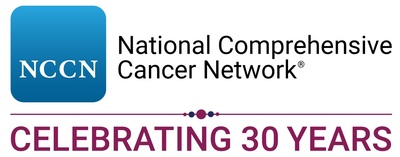TMCnet News
Chemotherapy Drugs from "Rogue" Online Pharmacies Could Endanger Leukemia Patients, Suggests Research in JNCCNA new study finds a majority of online pharmacies selling the chronic myeloid leukemia therapy imatinib are uncertified and could be operating unsafely. PLYMOUTH MEETING, Pa., July 28, 2022 /PRNewswire/ -- Patients seeking to purchase chemotherapy drugs online face a confusing array of websites, over half of which potentially operate unsafely or illegally, finds a new study in the July 2022 issue of JNCCN—Journal of the National Comprehensive Cancer Network. A survey of online pharmacies claiming to sell the oral chemotherapy drug imatinib found that only three of the 44 identified English-language sites that shipped within the United States were certified through the LegitScript online pharmacy monitoring service. A full 52% were classified as "rogue" pharmacies that might operate without a license, sell counterfeit or expired products, steal users' payment information, or reject important safety precautions like requiring a prescription for potentially hazardous medications. Tyrosine kinase inhibitors like imatinib have made chronic myeloid leukemia (CML) a manageable condition rather than a fatal one. Yet to work optimally, the drug must be taken for the rest of a patient's life and with high compliance. While a generic version of imatinib became available in 2016, high prices (averaging more than $700/month at brick-and-mortar pharmacies) have remained a barrier for many patients, who then may turn to online pharmacies in the hope of finding discounts. The authors recommend physicians be aware of the marketplace to which their patients may turn, and advise patients to use LegitScript, www.legitscript.com, to check URLs and identify certified online pharmacies. "We were struck by just how easy it is to buy an oral chemotherapy medication online, as imatinib is not a benign drug," said study co-author Sachiko Ozawa, PhD, MHS, Associate Professor, University of North Carolina Eshelman School of Pharmacy. "By simply searching Google, Bing, Yahoo, and DuckDuckGo, we found 44 websites that sold and shipped imatinib in the U.S.; 13 of these websites sold imatinib without a prescription, and more than three-quarters did not offer a way for patients to speak with a pharmacist. This is a significant concern for patient safety." Taking imatinib requires monitoring and frequent dosage adjustments. Even if an online pharmacy provides the medication as ordered, "patients bypassing provider interactions are likely to face much greater risks of nonadherence, discontinuation, treatment failures, and adverse events," Dr. Ozawa said. In addition, rogue or unclassified pharmacies may not be providing patients with the real medication at all, and could even be stealing patients' medical or payment information. These sites are difficult to regulate, as they often originate abroad. The authors note that the online marketplace for drugs like imatinib is likely larger than represented in the study, as they only analyzed the first 10 pages of search engine results. "We also found it deceiving how well some illegitimate websites mimic legitimate sites," said Dr. Ozawa. But how to address the reason patients would be using these under-regulated online pharmacies in the first place? Patients should be encouraged to speak with their pharmacist, financial counselor, or other members of their healthcare team if they can't afford their medications, said Benyam Muluneh, PharmD, BCOP, CPP, Assistant Professor, University of North Carolina Eshelman School of Pharmacy
"The exorbitant price of oncology drugs is a major barrier to optimal therapy of many malignancies, including CML," commented Bernard Marini, PharmD, BCOP, Clinical Pharmacist Specialist, Michigan Medicine, who treats patients with leukemias and other hematologic malignancies. Dr. Marini was not involved in the research. "As this eye-opening study found, the problem has become so bad that there is a major illegitimate online marketplace for generic oral oncology drugs. Healthcare providers need to be aware that many of these rogue and unapproved pharmacies do not even require a prescription or have access to pharmacist consultations, putting patients at high risk for adverse drug events. While patient-directed NCCN Guidelines for CML can be a great tool for reinforcing patient education, this study reminds us of the need to fully recognize the dangers of illegitimate online pharmacies and ensure our patients have appropriate financial support when prescribing high cost medications." To read the entire study, visit JNCCN.org. Complimentary access to "Online Pharmacy Accessibility of Imatinib, An Oral Chemotherapy Medication" is available until October 10, 2022. About JNCCN—Journal of the National Comprehensive Cancer Network About the National Comprehensive Cancer Network Media Contact:
SOURCE National Comprehensive Cancer Network 
|

